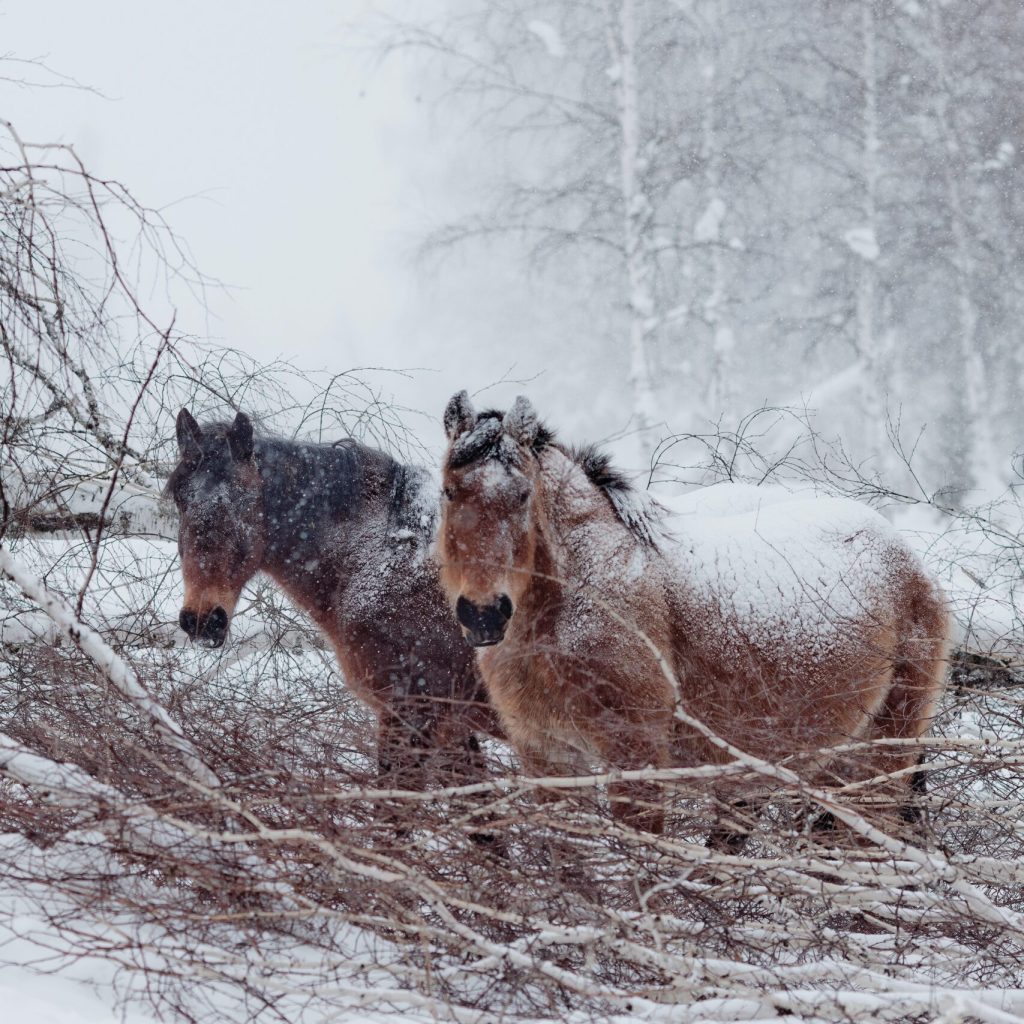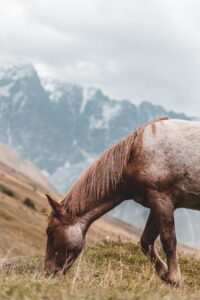Caring for your horse in winter
Not only humans are affected by the cold temperatures, horses are too. So, the question is how to make the winter time for our four-legged friends as comfortable as possible.
.
Provide more water for your horse as they need it. Dehydration can cause real problems, for example, they may get more prone to impaction colic. Additionally, while drinking not enough, horses also eat less, which leads to getting less energy to overcome winter temperatures. Also, do not forget to check often whether the bucket with water does not freeze.
To maintain the body warmth a horse needs additional energy, so it is crucial that it has access to good quality forage (grass, hay or haylage) throughout the colder months. Be prepared by ordering your hay supply ahead of time and always have plenty.
Horses should have access to shelter from wind, sleet and storms while being out for grass. Note that horses get colder when inside because they can’t move around as much as outside, so make sure that your horse gets a rug and the bedding is kept clean and dry.
Moreover, your horse should not stop exercising during the winter months, because limited exercising may lead to lower leg swelling (stocking up). Therefore, go for a ride as often as possible while being cautious when riding in deep, heavy or wet snow to prevent tendon injuries as well as avoiding icy areas for the safety of both.


Horse hooves should be trimmed every 6 to 12 weeks, even though they generally grow slower in the winter months. To prevent slipping and falling and make it easier for them to walk, you should get rid of ice and snowballs, especially after a heavy snow. You should also take care that no wounds appeared after walking in the snow. If some small wounds appear, rinse them with the Sanocyn forte Solution. The Solution removes unwanted bacteria, fungi and viruses, and, thus, create the best conditions for wound healing. After that, you can apply the Sanocyn forte Hydrogel, which keeps the wound moist and forms a protective film.
To sum up, you should be prepared for cold temperatures and take care of your horse in the special way during the winter months.
share our post:

Papillomas in horses
Papillomas, also known as warts, are a common viral skin disease in horses. They are caused by the equine papillomavirus (EPV), which is highly contagious and can be transmitted between horses through direct contact or contaminated equipment. While papillomas are not usually a serious health concern, they can be unsightly and can cause discomfort or irritation for the horse.

Cats and heat
Cats are known for their love of warmth and sunshine, but when temperatures soar, our feline friends can face some challenges. As a cat owner, it’s important to understand how cats cope with heat and what you can do to help them stay cool and comfortable during hot weather.

Summer travel with your dog
Summer is a great time to hit the road with your furry friend and explore new destinations together. However, traveling with a dog requires some extra planning and preparation to ensure a safe and enjoyable trip for both you and your four-legged companion. In this article, we will provide some helpful tips and advice for traveling with a dog during the summer.

Sunburn in horses
Sunburn is a common issue that can affect horses during the summer months, especially those with light-colored hair or pink skin. In this article, we’ll discuss what causes sunburn in horses and how you can prevent and treat it.

Itchy skin on your pet?
One of the most occurring reasons to visit a vet is itchy skin. It is an urgent problem that causes discomfort for the pet as well as for its owner. If you identify itchy skin in your pet, you should make an appointment with your veterinarian. Let’s discuss what you should expect from your appointment.
